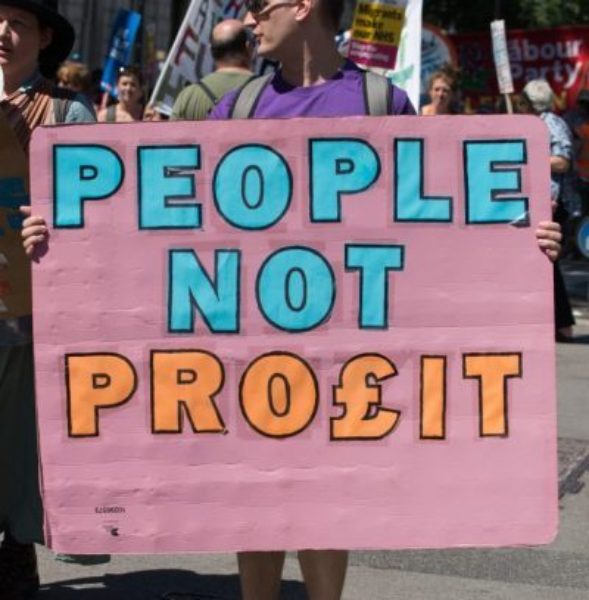PAUL EVANS – director of the NHS Support Federation, comments
Millions of patients had their treatment put on hold whilst the NHS battled Covid-19, and waited with considerable anxiety not knowing when their turn would come. They deserve urgent care and if using beds and theatres in private hospitals is the way to guarantee it, then it should be done, but the unremitting desire of governments to outsource and the long record of failures rightly set off alarms.
The deal should be a time-limited arrangement and certainly not a replacement for the core requirement for a credible new plan to lift NHS capacity. For a decade the government has ignored the evidence about the levels of resources and staffing needed to match the rising health needs of our community and have run-down key services like public health, hitting the poorest worst. No more. This new, funded plan, must start now and run in parallel with any deal done with the private sector.
Bed numbers had been cut steadily for over a decade and before Covid there was a staffing crisis with over 100,000 vacancies, including 40,000 nurses. For the first time on record, in late 2019, the NHS was missing all its targets, including A&E waiting times, cancer treatment and non-urgent surgery. The waiting list for non-urgent procedures was at 4.4 million, also at a record level.
The NHS needs more than private sector help, but even if the deal is done will they deliver? The public may rightly question the motives of private companies – that have been positioning themselves to profit from the NHS for years. Outsourcing in the NHS has delivered a catalogue of failures and examples of companies gaming the system and providing poor value.
Successive governments have made it a pivotal aim to encourage greater for-profit involvement, despite the stack of problems. So forgive the cynics who perceive a glint of opportunism in ministers’ eyes at this new deal.
A life line for companies
For the private health providers the NHS deal has been a lifeline, giving them a guaranteed income stream in very difficult times. These companies already rely heavily on work from the NHS – at over 80% of Ramsay’s income and around 40% of BMI/Circle and Spire’s income – and this was falling prior to the pandemic as the NHS was instructed to reduce use of the private sector to save money.
With the lockdown came a cessation of all private work – without the March deal from the government the companies would have found it very difficult to survive. Although they have now been allowed to restart some private work, a worldwide recession beckons, and so making the NHS deal will be an even more important part of their strategy.
Make no mistake, the public should have the upper hand in this negotiation, as many private health companies have suffered flagging fortunes of late and are already being propped up with by £400m a month in public tax receipts, so the government should dominate the terms to make this agreement work for patients and the NHS.
Paying for treatments not delivered
We should learn too from earlier efforts to dragoon the private sector in to help with waiting lists prior to 2010, which whilst contributing to reducing the delays for some patients, resulted in over £200m in payments to providers for treatments that didn’t take place.
Don’t forget the position of staff, who need continual training, a cost largely born by the NHS. Shouldn’t then the NHS be compensated by the private companies who lure staff away? Improved NHS pay and working conditions are a top priority and would help to reward and keep precious NHS staff.
What about the current NHS Plan? Whatever your view it has not yet delivered a credible strategy to: recruit and retain its workforce, to build and repair NHS facilities both in the acute and community sectors, to set proper funding, end creeping privatization and put in place accountable structures so that the NHS can be properly planned and run in the public interest. The NHS and its patients deserve better.









